
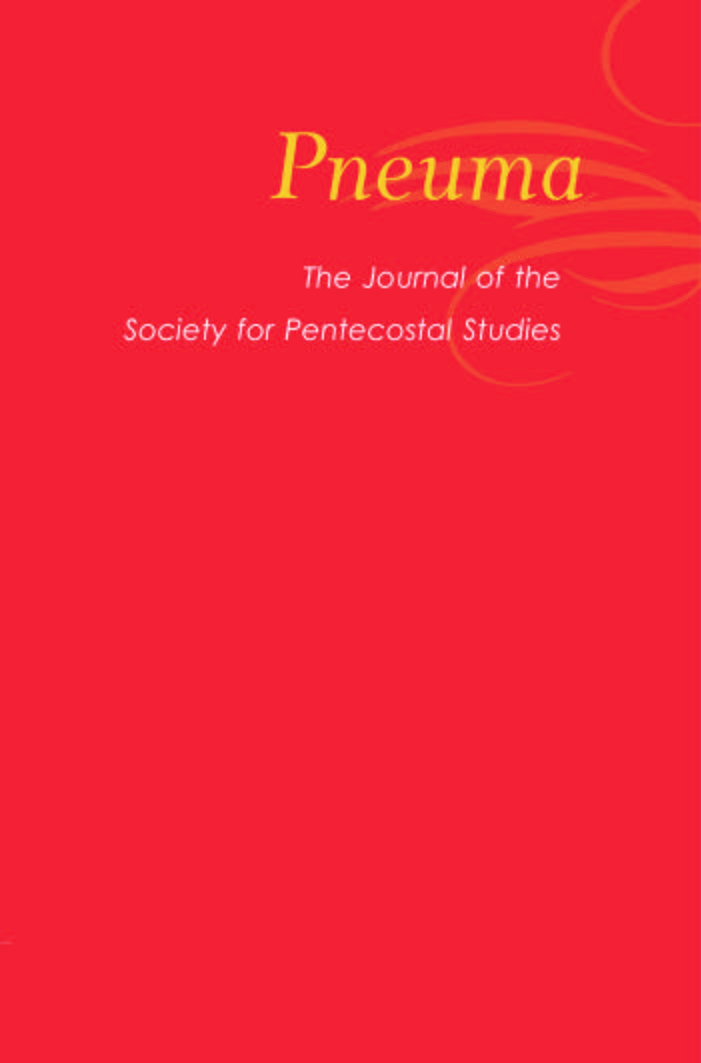
![]() Pneuma, the journal of Pentecostal studies, devotes a double issue (42) to the futures of charismatic and Pentecostal movements around the world. Although seen as a global religious movement of approximately 400 million adherents, the articles in this issue suggest that the churches in each region are facing particular issues in gaining or maintaining vitality and influence. In his article on North American Pentecostalism, David Daniels writes that the various charismatic and Pentecostal bodies are at the crossroads of extending the culture wars or building on their multiracial and multicultural base to take on a more progressive identity. The article is informed by the racial protests of last spring, though it curiously doesn’t mention the significant Pentecostal support given to President Trump. Other articles identify such issues as the growth of commercialism and the prosperity gospel (in Africa and Australia) and social action (in Laan America, though, again, there is life discussion of conservative and populist forms of activism). An article on European Pentecostalism finds that it has achieved a multicultural reality that much of the continent still struggles with its secular institutions. For more information on this issue, visit h4ps://brill.com/ view/journals/pneu/42/3-4/pneu.42.issue-3-4.xml.
Pneuma, the journal of Pentecostal studies, devotes a double issue (42) to the futures of charismatic and Pentecostal movements around the world. Although seen as a global religious movement of approximately 400 million adherents, the articles in this issue suggest that the churches in each region are facing particular issues in gaining or maintaining vitality and influence. In his article on North American Pentecostalism, David Daniels writes that the various charismatic and Pentecostal bodies are at the crossroads of extending the culture wars or building on their multiracial and multicultural base to take on a more progressive identity. The article is informed by the racial protests of last spring, though it curiously doesn’t mention the significant Pentecostal support given to President Trump. Other articles identify such issues as the growth of commercialism and the prosperity gospel (in Africa and Australia) and social action (in Laan America, though, again, there is life discussion of conservative and populist forms of activism). An article on European Pentecostalism finds that it has achieved a multicultural reality that much of the continent still struggles with its secular institutions. For more information on this issue, visit h4ps://brill.com/ view/journals/pneu/42/3-4/pneu.42.issue-3-4.xml.
![]() The Asia Research Institute at the National University of Singapore has started the research blog. CoronAsur, which seeks to capture in words and images the ritual responses to the pandemic emanating from practitioners and scholars around the world, though focusing on Asia. The premise that the virus has turned out innovations in rituals in a wide range of religious communities animates the blog. The entries suggest that many of these rituals were reworked from previous crises and disasters. For instance, the rituals surrounding the virus in Singapore and Malaysia involving underworld spirits started during the financial crisis of a decade ago. Other rituals were changed by necessity, such as a Zoroastrian burial ceremony that fed the deceased to vultures now cremating the dead out of fear of infection by the virus. The editors report that most virtual representations of rituals have not used more participatory virtual reality technology but rather consist of static representations. of solitary rituals performed by priests in the absence of their communities.
The Asia Research Institute at the National University of Singapore has started the research blog. CoronAsur, which seeks to capture in words and images the ritual responses to the pandemic emanating from practitioners and scholars around the world, though focusing on Asia. The premise that the virus has turned out innovations in rituals in a wide range of religious communities animates the blog. The entries suggest that many of these rituals were reworked from previous crises and disasters. For instance, the rituals surrounding the virus in Singapore and Malaysia involving underworld spirits started during the financial crisis of a decade ago. Other rituals were changed by necessity, such as a Zoroastrian burial ceremony that fed the deceased to vultures now cremating the dead out of fear of infection by the virus. The editors report that most virtual representations of rituals have not used more participatory virtual reality technology but rather consist of static representations. of solitary rituals performed by priests in the absence of their communities.
Another theme of the blog covers how the selling of rituals has shifted toward the home. “Minimosques” emerged for Eid celebrations and are praised for their intimacy and greater gender inclusivity than traditional mosques. Another subject covered on the blog is the increase in religious conflict and scapegoating (such as Muslims being blamed for spreading Covid in India), but also renewed altruism (as with the Hindu nationalist RSS engaging in relief efforts to other religious groups, and the rescue of Rohingya refugees by the Islamic community in Aceh, Indonesia). Another interesting feature of the blog is its afternoon to the economic effects of Covid on religious institutions, especially the way the virus has revealed the inequality in the religious sphere, with larger institutions, such as megachurches, adapting to online fundraising while smaller churches and temples struggle to survive. One area the blog is just starting to look at is the matter of those groups that have only been left behind by these ritual adaptations and innovations, such as the elderly, the untouchable caste, the institutionalized, and rural people. The blog can be visited at: https://ari.nus.edu.sg/coronasur-home/

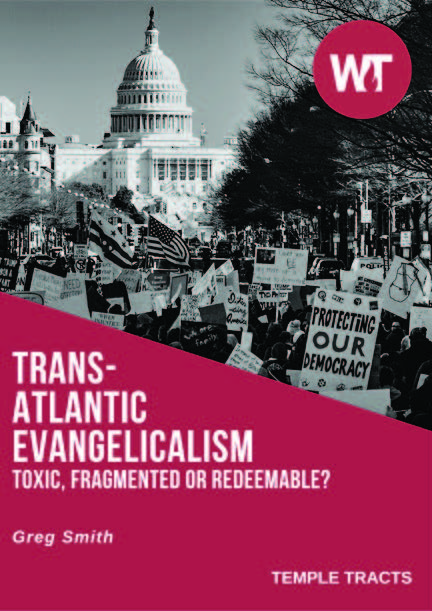
![]()
Greg Smith of the UK’s William Temple Foundation has authored Trans-Atlantic-Evangelicalism, a comparative report on British evangelicals and their American counterparts, in Temple Tracts, a series published by the Foundation. The 30-page report suggests that American and British evangelicals are further apart than at any time in their shared history, mainly due to the influence of populism and the Trump presidency among the former. At the same time, through analysis of surveys, Smith finds that British evangelicals have shifted toward more liberal political positions even as the UK undergoes rapid secularization. To download this study, visit: https://williamtemplefounda-on.org.uk/temple-tracts/
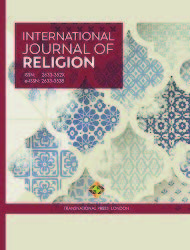
![]()
The International Journal of Religion (IJOR) is a new journal aiming to offer a venue for scholarly discussion on religion in reference to the social sciences. and humanities, bringing “policymakers, practitioners, educators, scholars, researchers, and students into…crucial, controversial and topical conversations.” The journal covers religious conflicts associated with terrorism, migration, and interethnic dispute, and how religion impacts populism and nationalism. The publishers note that while there are already several academic journals examining religion and related issues in social scientific contexts, few focus on the multiple issues that IJOR does. The first issue does indeed cover a wide range of international religion issues—from culture wars in Korean Protestantism over LGBTQ issues, to the historical treatment of the Nation of Islam and legal issues, to the role of conservative religious dissent in French and Italian populist parties (with the authors finding less in the former and more in the later). Particularly interesting is a study of. ultra-Orthodox Jewish settlements in southern Israel and how sellers are downplaying rabbinical authority. Yet this decline in religious authority does not necessarily mean secularization, as the settlers “believe that their religion requires them to have an independent mind and think for themselves…Even the supposed dissenters…are all connected to the Jewish religion, despite their complete disregard for formal religious authority,” according to the article. For more information on this issue, visit: h4ps://journals.tplondon.com/ijor
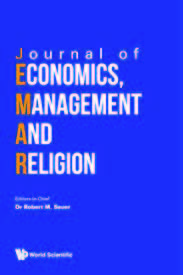
![]()
The Journal of Economics, Management and Religion (JEMAR) is the first academic journal to explore the relationship between economics, management, and religion. There has been talking for years of starting a journal on the economics of religion, a subfield receiving considerable afternoon in recent decades. Most of the editorial board consists of prominent scholars in the economics of religion, so it is likely that much of the new research in this field will find its way into the pages of JEMAR. The first issue includes a study based on an experiment on Facebook designed to measure subjects’ altruism and trust towards attendees of a synagogue service, a fitness class, and a local music performance. Secular and religious subjects alike displayed significantly more altruism and trust towards the synagogue attendees than the attendees of the other two secular venues. Another article based on a panel study of developed countries describes a long-running negative association between church attendance and total factor productivity. For more information, visit: htttps://www.worldscien-fic.com/worldscinet/jemar
![]()
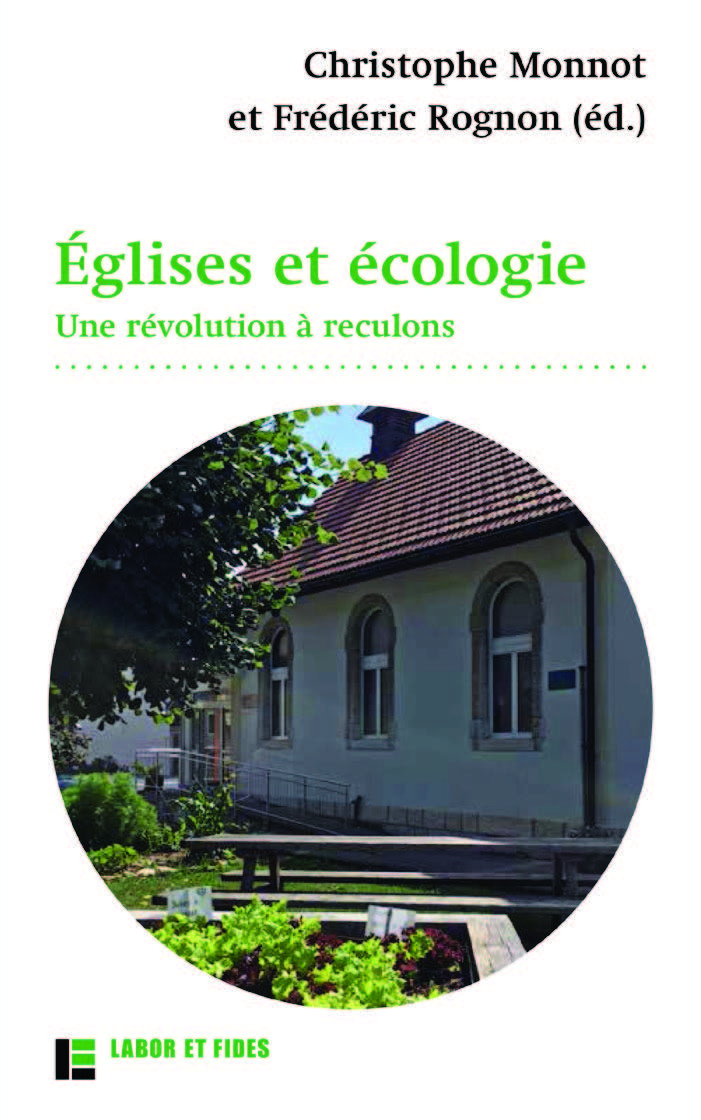 A newly published book in French, Églises et Écologie: UneRévolu-on à Reculons (Labor et Fides, € 19), which can be translated as “Churches and the Environment: A Reluctant Revolution,” edited by Christophe Monnot and Frédéric Rognon (both at the University of Strasbourg), brings together six other researchers to share their insights on various aspects of the impact of the growing environmental movement on Christian churches, with an emphasis on French-speaking Europe. While churches in Europe have historically been at the forefront of major social innovations, the editors note that they have been lagging behind on environmental issues. There have been a number of significant statements across Christian denominations over the years, from declarations issued by the World Council of Churches (Maran Robra, from the Ecumenical Institute in Bossey, devotes a full chapter to this topic) to the formulations of Liberation theologians such as Leonardo Boff with his “ecotheology of liberation” (as explained in a chapter by Luis Martinez Andrade), or of Pope Francis himself with his encyclical Laudato si’ (2015). But the practical impact of those statements and of discourses on a theology of creation seems to have remained rather modest for a long time in several countries.
A newly published book in French, Églises et Écologie: UneRévolu-on à Reculons (Labor et Fides, € 19), which can be translated as “Churches and the Environment: A Reluctant Revolution,” edited by Christophe Monnot and Frédéric Rognon (both at the University of Strasbourg), brings together six other researchers to share their insights on various aspects of the impact of the growing environmental movement on Christian churches, with an emphasis on French-speaking Europe. While churches in Europe have historically been at the forefront of major social innovations, the editors note that they have been lagging behind on environmental issues. There have been a number of significant statements across Christian denominations over the years, from declarations issued by the World Council of Churches (Maran Robra, from the Ecumenical Institute in Bossey, devotes a full chapter to this topic) to the formulations of Liberation theologians such as Leonardo Boff with his “ecotheology of liberation” (as explained in a chapter by Luis Martinez Andrade), or of Pope Francis himself with his encyclical Laudato si’ (2015). But the practical impact of those statements and of discourses on a theology of creation seems to have remained rather modest for a long time in several countries.
Some scholars suggest that the emphasis on social issues distracted the churches from environmental priorities, while other studies indicate that polarization between progressive and conservative believers around environmental issues may have had a neutralizing effect. In addition, one should note that environmental awareness has not grown at the same pace across different areas, with Northern Europe and Germany being faster to incorporate concerns for the environment in their discourses and practices. Despite early advocates of a green theology, important statements stressing the need to act for the environment (such as the statement, “Justice, Peace and the Integrity of Creation” at the WCC Assembly in Vancouver in 1983), and a growing number of local initiates, a chapter by Christophe Monnot based on cases observed in Switzerland suggests that environmental impulses have often been slowed down by the church institutions, although the influence of Christian NGOs sensitive to green issues and of widespread secular trends (e.g., youth movements for the environment) is changing things. However, since European churches are facing pressing challenges with the decline of their social significance, they might be reluctant to add further uncertainties by embracing environmental causes, even as local parishes feel less restraint and documents such as Laudato si’ encourage a variety of projects.